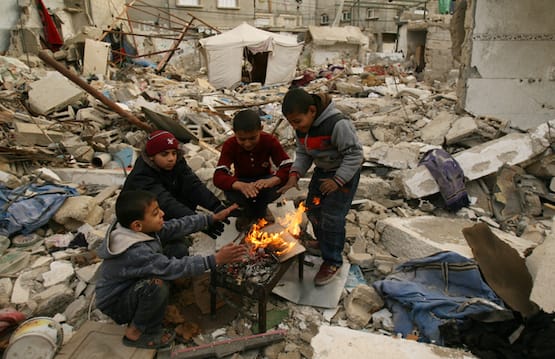The problem: economic inequality and social injustice
According to the World Bank, around 702 million people worldwide live on less than US$1.90 a day. [1] For those in extreme poverty, it is difficult or impossible to secure adequate food and shelter, let alone access to education and basic health care. The global poor and politically disenfranchised — namely women and girls, and racial and sexual minorities — are particularly vulnerable to the effects of conflicts, natural disasters, and climate change.

The solution: coordinated action
The causes and effects of global poverty are complicated and interlocking, so the best way to bring about real change is to implement multifaceted, broad solutions to the root causes and ramifications of poverty. These include long-term development, emergency and disaster relief, as well as political advocacy for structural change.
How Oxfam works
Oxfam is uniquely equipped to respond quickly, effectively, and on a great scale to global crises. Oxfam’s size and reach make it a world leader in combating poverty. Whereas smaller nonprofits usually have a narrow focus, Oxfam works not just to address current needs, but to influence policy and infrastructural changes on the international, national, and local levels.
Their 20 national offices work with thousands of local NGOs and nonprofits to test and implement initiatives tailored to individual communities on a wide range of focus areas, including [2]:
- agriculture
- education
- health
- HIV/AIDS
- climate change
- aid effectiveness
- emergency response
- gender justice
- indigenous and minority rights
- natural resources
- peace and security
- private sector
- trade
- youth outreach

